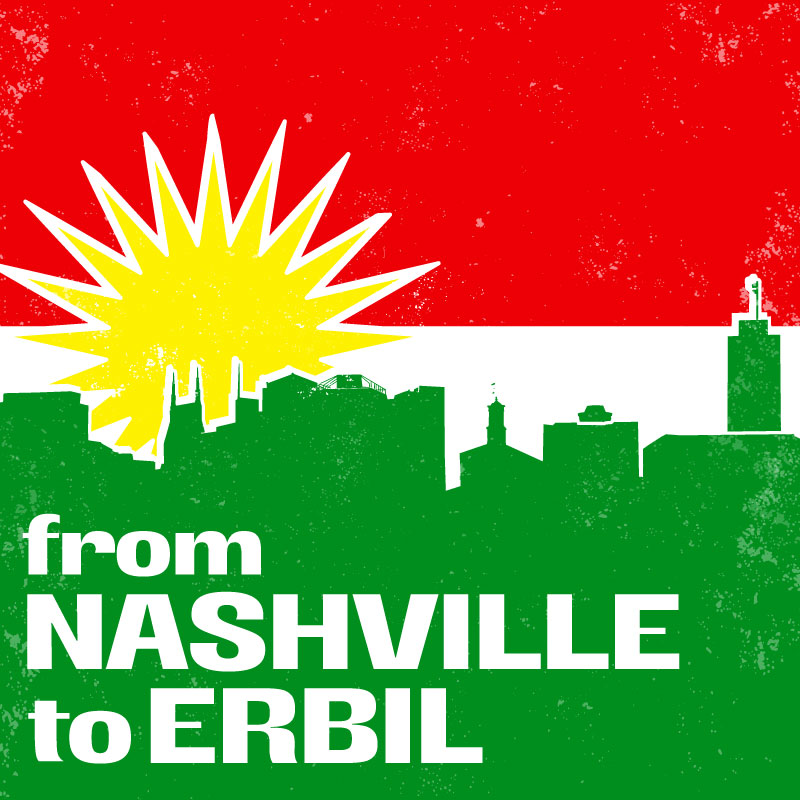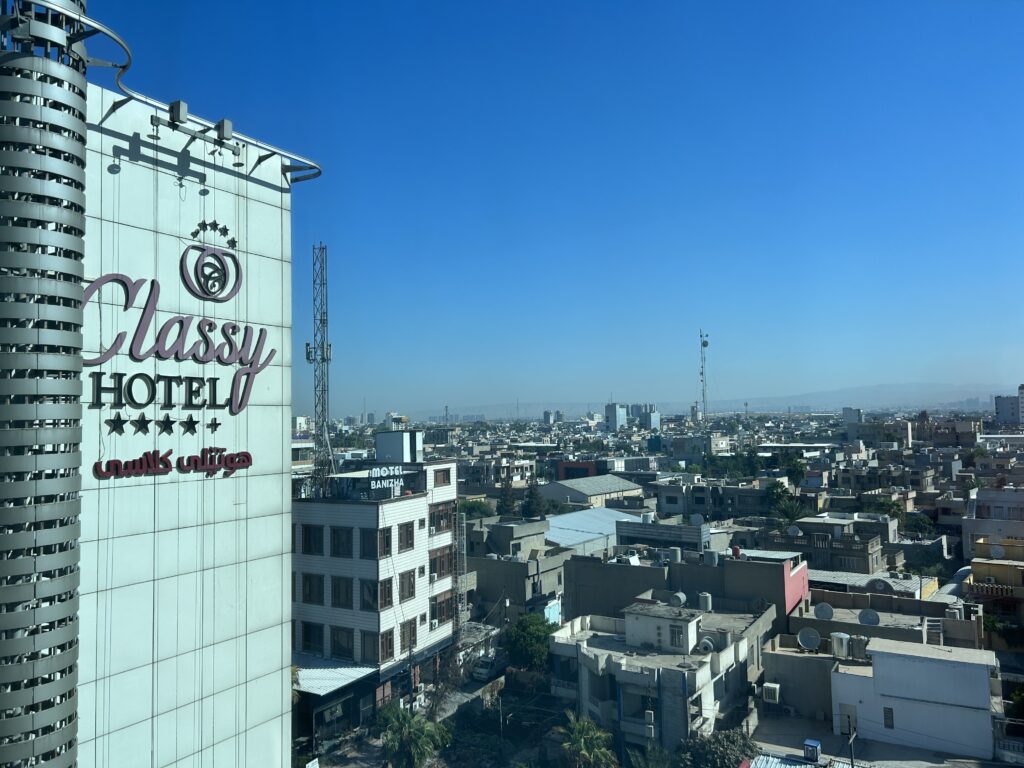
Nearly two years ago, I came to the leadership at WPLN with a somewhat outrageous idea: to send me, a local general assignment reporter, on a five-week-long reporting trip to Erbil, the capital of Iraqi Kurdistan.
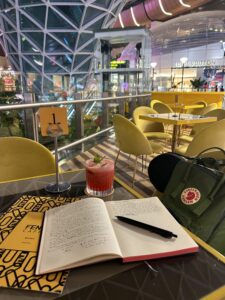 Rose Gilbert WPLN News
Rose Gilbert WPLN NewsMy reporter’s notebook on the way to Erbil.
Erbil (often called Hawler by Kurdish people) is also Nashville’s newest sister city, a distinction born of our vibrant Kurdish community, which is the largest in the United States. The idea was to go to Kurdistan and create a project about the unique relationship between our two regions. To my delight, the station’s editors and leadership were on board.
Originally, I had planned to post regular dispatches from Erbil as a complement to the larger project (coming soon!). Then, several experienced international reporters explained to me that it could be dangerous to publish live updates on where I was and what I was doing while traveling alone in northern Iraq.
And so I kept a reporter’s notebook chronicling my trip, a notebook I’m now sharing with you.
This is where it begins.
Saturday — Sept. 7, 2024
I landed in Erbil at sunrise, deliriously tired and deeply gratified.
It had been a long journey.
Three flights: Nashville to New York City; New York City to Doha, Qatar; Doha to Erbil. The trip was made even longer by a surprise overnight layover in Doha — the war in Gaza was raging, and my flight to Erbil had apparently been delayed by a passing missile from Iran.
Doha’s Hamad International Airport was a splendid, flashy thing with an indoor garden, LED art displays, and 24/7 luxury shopping, in case you found yourself seized by a late-night urge to pick up a new cashmere sweater or a diamond necklace in the shape of a snake.
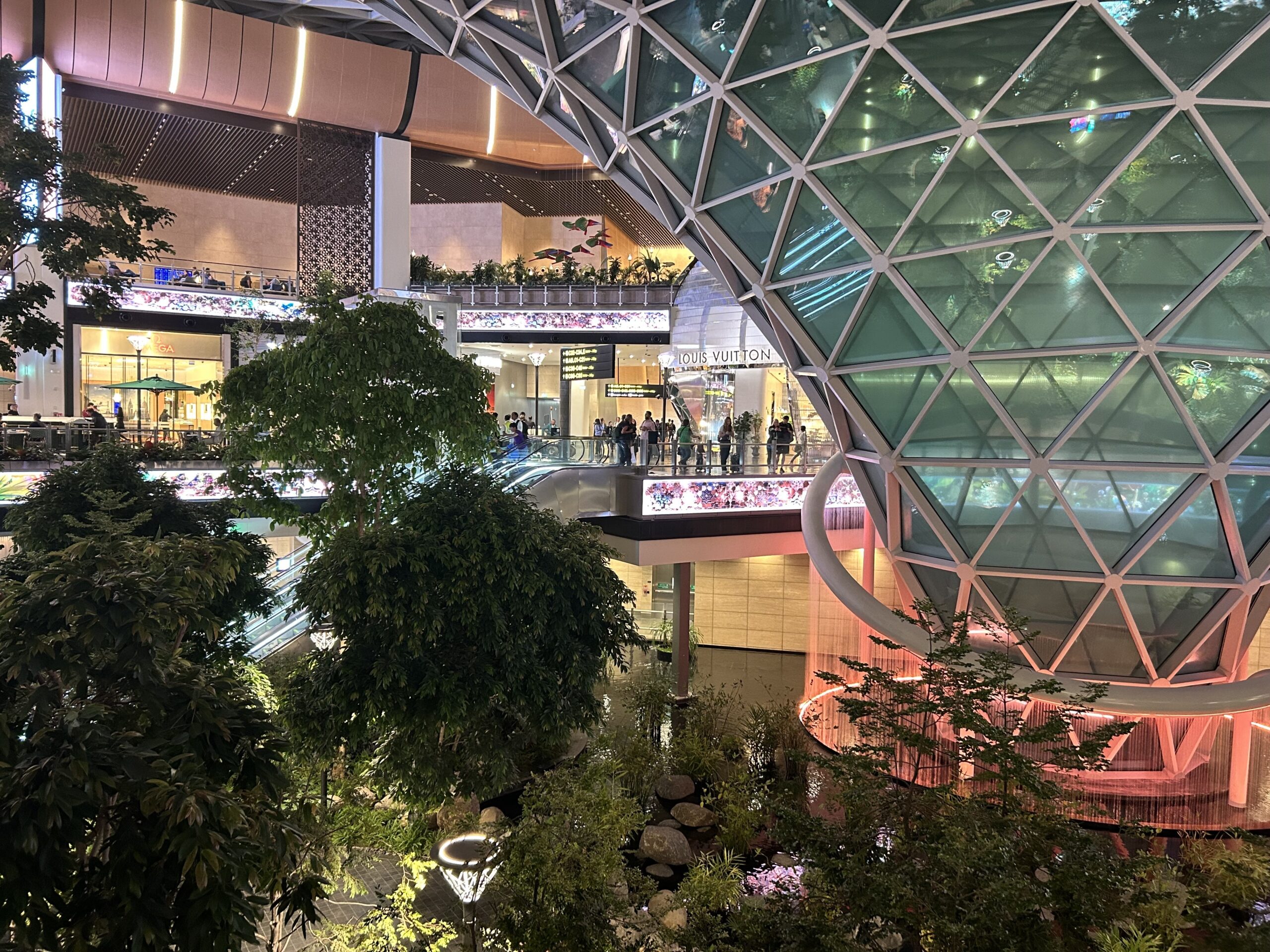 Rose Gilbert WPLN News
Rose Gilbert WPLN NewsThe interior of Doha’s airport, featuring multiple levels of shopping
Hours later, I boarded my third and final flight, and watched Doha’s fantastical skyscrapers shrink as we flew away, towards Iraq. Oil refineries burned brightly below.
Then, more than 30 hours after I’d left my apartment in Nashville, I was there: Erbil International Airport.
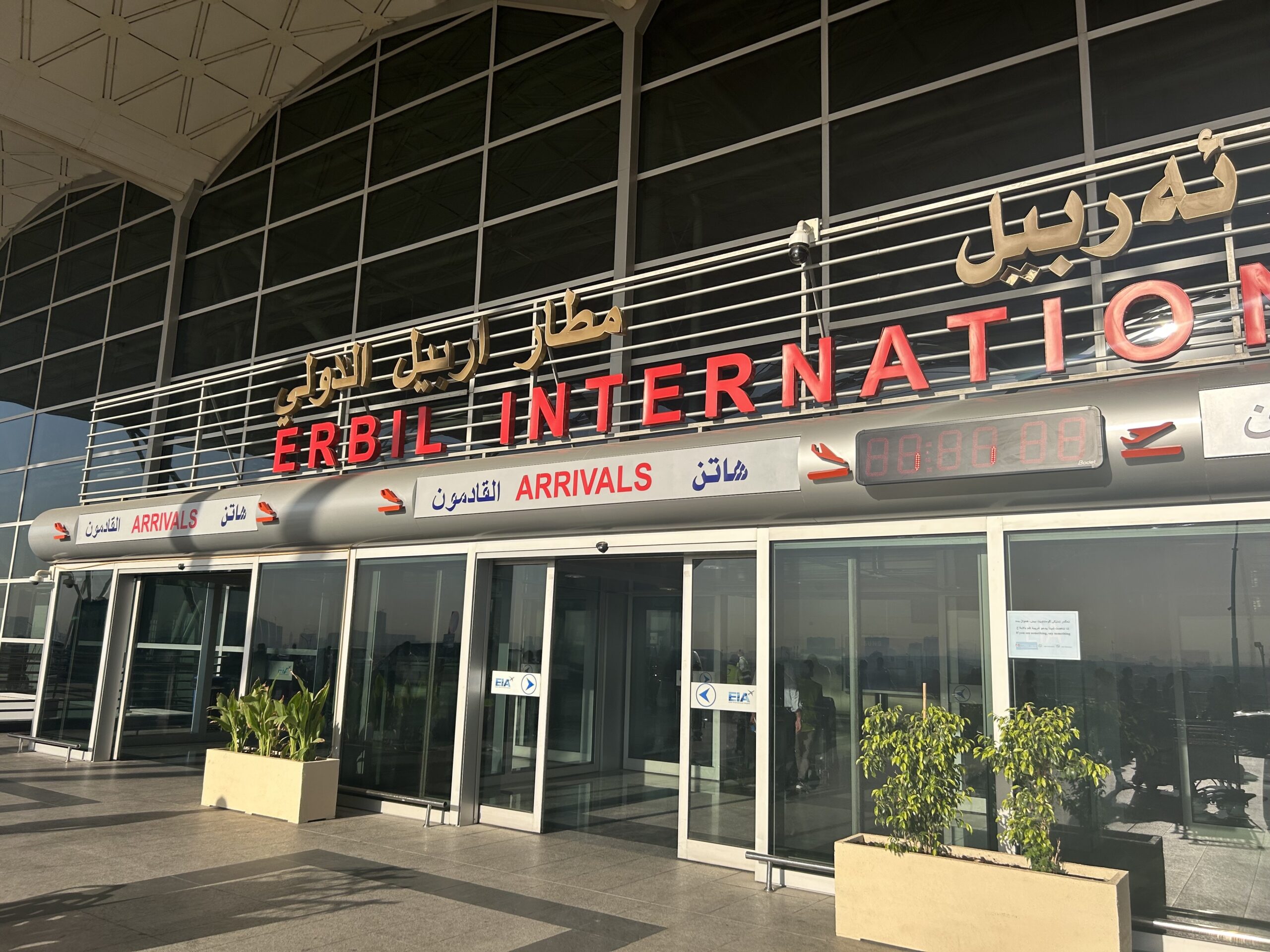 Rose Gilbert WPLN News
Rose Gilbert WPLN NewsErbil International Airport
It was just past 6 o’clock in the morning, but the baggage claim was already bustling with people and their mountains of luggage — not many short-stay tourists here. I grabbed my own monstrously overstuffed bag, full of audio recording equipment and Nashville-themed gifts for my hosts.
It was already warm outside, and threatening to get warmer. The high was going to be over 100 degrees that day, and every day for the next several weeks.
I was met by a man named Azad Sameen, the saint who had gotten up before dawn to come pick me up.
Azad came to Tennessee with his family as a refugee in 1996 when he was 14 years old. He returned to Kurdistan as an adult and became instrumental in the decades-long push to make Erbil and Nashville sister cities.
I knew him instantly by his bright blue Nashville baseball cap, which he told me was given to him by former Mayor Bill Purcell.
He drove me to my lodgings for the next month: the Classy Hotel Ankawa.
I had booked my room weeks ago. All I knew about the place was that it was located in the city’s Christian quarter, right next to the American consulate. It had been popular with international journalists covering conflict in the region: first the invasion of Iraq and, later, the war against the Islamic State group, or ISIS.
Things have settled down since then. The war correspondents of the world have long since packed their bags and moved on. But peace is still far from a foregone conclusion in the region: on Jan. 15, 2024, the American consulate was targeted by an Iranian missile attack, killing five civilians and wounding six others.
And it is on that same street where Azad dropped me off at the Classy Hotel Ankawa, nine months later.
A red carpet and a pair of armed guards greeted me at the door. They patted down Azad, but not me, before we were allowed to enter.
Inside, it was comfortable and modern, but frayed at the edges — battered by recent history. Kurdish and Iraqi flags stood in the lobby, side by side.
Geopolitics buffs may know that Kurdistan is not technically a country. It’s a region, split across Iraq, Iran, Syria and Turkey. Of these four parts, Iraqi Kurdistan (also known as bashur, or southern Kurdistan) is unique.
It is an autonomous region, with its own government and its own military force, the famed peshmerga, which translates roughly to “the ones who face death.” The Kurdish Regional Government, or KRG, has been around since the 1990s but was only officially recognized by the Iraqi government in 2005 after the U.S. invasion of Iraq and the fall of Saddam Hussein.
To give you a sense of the separation, my visa for this trip was only valid for the KRG. If I wanted to travel to Mosul or Baghdad or any other part of southern Iraq, I would need to apply for an entirely separate bit of paperwork.
When I got to my hotel room, it was larger than I thought it would be, with shimmery, rose-patterned wallpaper, which I found auspicious.
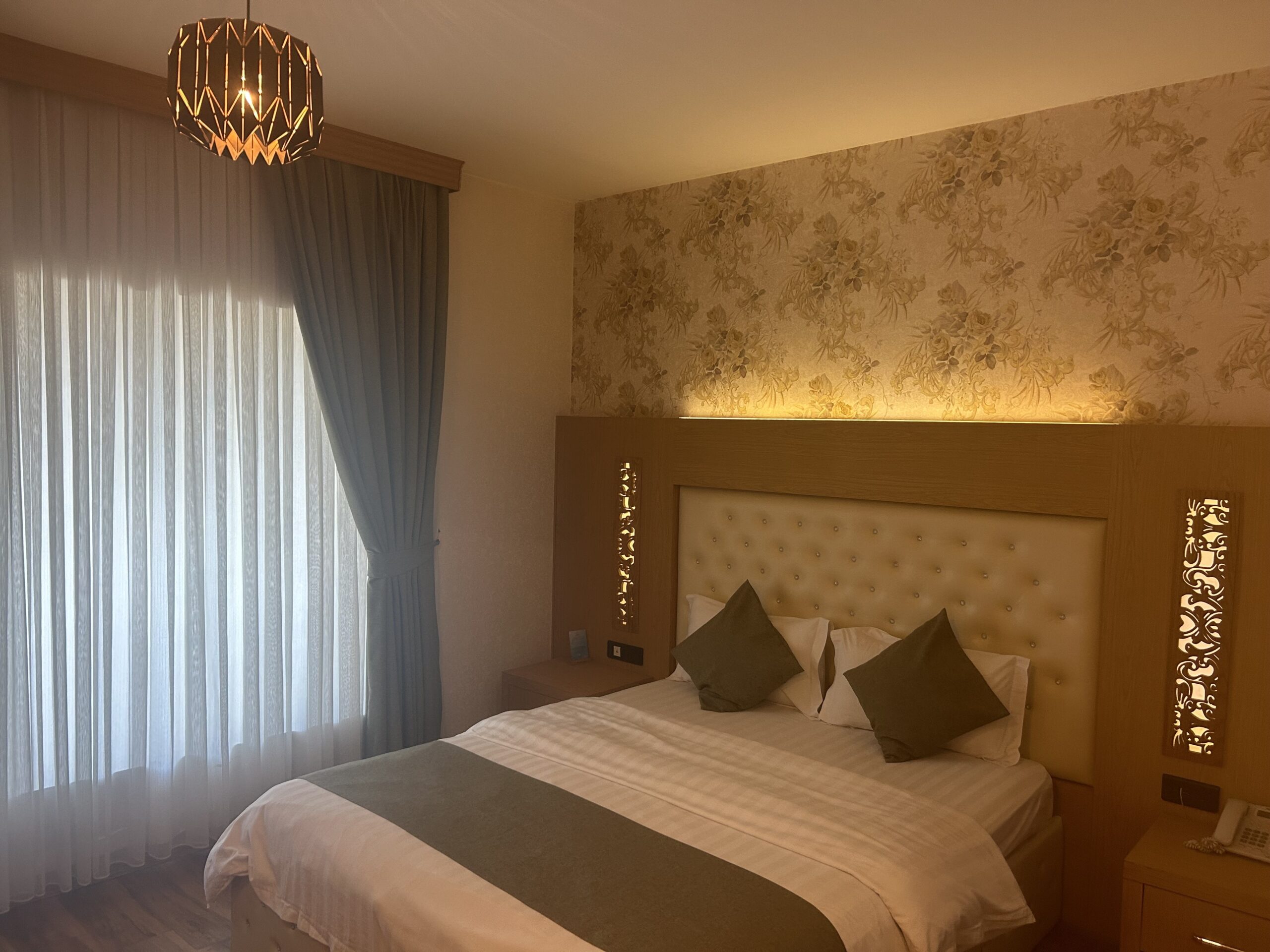 Rose Gilbert WPLN News
Rose Gilbert WPLN NewsMy room for the next several weeks at the Classy Hotel Ankawa
Despite the “no smoking” signs posted in the hallways, there was an ashtray on the desk. And a cigarette hole burned into the cream footstool, next to the helpfully provided ashtray.
The air conditioning was ferocious, but when I stood next to the window, I could still feel the heat radiating from outside.
Erbil stretched out before me: old stucco homes, construction sites, palm trees, towering apartment buildings, minarets. Somewhere out there, I knew, was the city’s ancient citadel, one of the oldest continuously inhabited places on Earth. And older still, there were the mountains, blue and distant on the horizon.
For now, it would have to wait. The long journey caught up with me, and I was soon helplessly, blessedly asleep.


